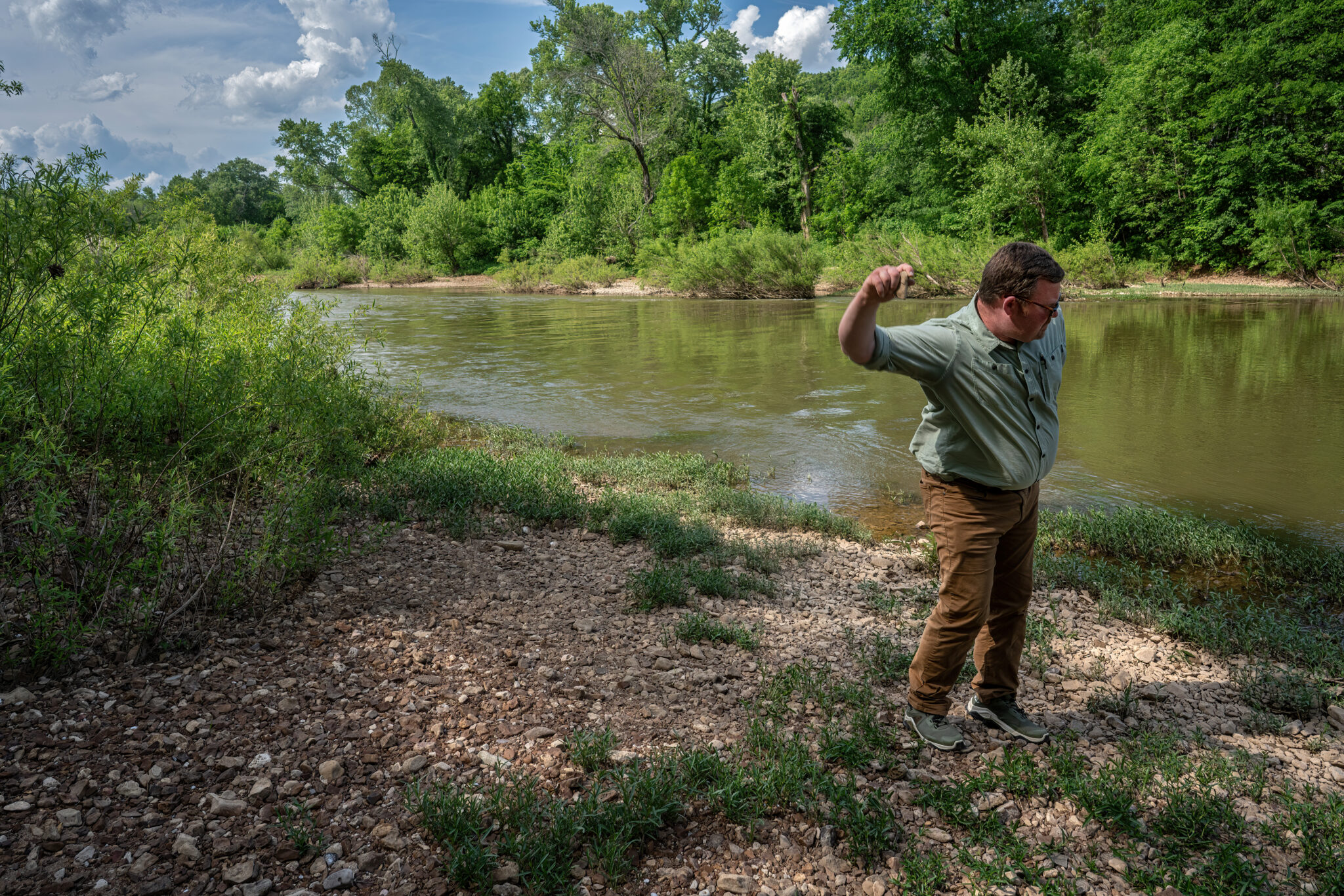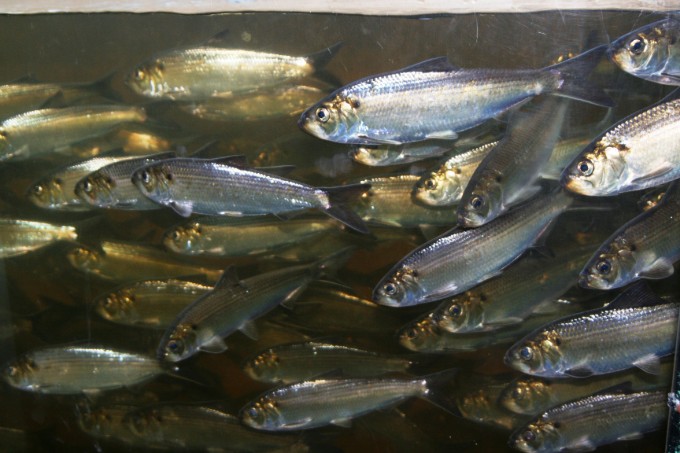Displaying items by tag: water supply
Water supply demands could strain Duck River’s rare riverine habitat
 John McEwan, whose family has lived on the banks of the Duck River since the 1860s, skips stones on the Duck River. Environmental groups fear excessive demand is fueling drawdowns that are affecting the rich biodiversity of the Middle Tennessee river.&nsp; Tennessee Lookout/John Partipilo
John McEwan, whose family has lived on the banks of the Duck River since the 1860s, skips stones on the Duck River. Environmental groups fear excessive demand is fueling drawdowns that are affecting the rich biodiversity of the Middle Tennessee river.&nsp; Tennessee Lookout/John Partipilo
Long time residents and conservation groups say industry lured by the state, population growth are draining water from a river prized for its biodiversity
This story was originally published by Tennessee Lookout.
COLUMBIA — When Gov. Bill Lee announced the state had lured a General Motors lithium battery supplier to Spring Hill three years ago, it was his largest economic announcement to date:
A $2.6 billion corporate investment; 1,300 new jobs; a major stepstone along Tennessee’s path to become an EV hub — helped along by a then-record $46,000 per job in taxpayer incentives.
The factory deal’s less conspicuous specs — its continuous need for 1.4 million gallons of water per day — is now figuring in a larger battle pitting citizens and conservation groups against state environmental regulators.
Last month, the Tennessee Department of Environment and Conservation (TDEC) granted permission to Columbia Power and Water Systems — which pumps water to the new Ultium Cells plant — to increase its current withdrawals from the Duck River by 60 percent.
It’s one of eight water companies along the Duck River seeking to dramatically increase water draws to meet rising demands for water in the rapidly growing five-county region southwest of Nashville.
- duck river
- duck river biodiversity
- tennessee lookout
- middle tennessee environment
- lithium batteries
- gov bill lee environment
- john mcewan
- hickman for the duck
- ultium cells plant water use
- doug jones duck river
- anita wadhwani
- water demand
- water supply
- economic growth
- general motors
- southern environmental law center
- tennessee department of environment and conservation
- tdec
- columbia power and water systems
- spring hill, tn
- george nolan
The Revelator: 10 ways targeted dam removals can help solve the climate change dilemma
 Alewives returned by the millions after the Edwards and Ft. Halifax dams were removed in Maine. John Burrows/ASF via The Revelator
Alewives returned by the millions after the Edwards and Ft. Halifax dams were removed in Maine. John Burrows/ASF via The Revelator
By providing both mitigation and adaption, dam removal can lower greenhouse gas emissions and restore carbon sinks.
This article was originally published in The Revelator. Gary Wockner
As the climate crisis escalates, a huge amount of attention and money is being focused on climate solutions.
These can be divided into two categories: solutions that pursue “mitigation,” which lowers greenhouse gas emissions, and those that pursue methods to adapt to climate impacts to increase human and ecological resiliency.
Dams, of course, create enormous environmental harms, many of which have already been described in scientific literature. Equally well documented is the fact that removing dams can restore seriously damaged ecosystems. But missing from almost every climate-solution story and study is how dam removal can be key for both mitigation and adaptation.
Here are 10 reasons how dam removal fights climate change.
- climate action
- dam removal
- the revelator
- gary wockner
- greenhouse gas emission
- methane emission
- natural flow of the river
- river plume
- carbon sink
- reservoir
- biodiversity
- sediment transport
- fish population dynamic
- water supply
- reservoir evaporation
- climate resilience
- heat island
- forest cooling effect
- river cooling effect
- climate crisis
- lake mead water level
- colorado river water restriction
Biodiversity in crosshairs as burgeoning Middle Tennessee fears water shortage
 This biologically rich stretch of the Duck River could soon be the site of a large municipal water intake facility.
This biologically rich stretch of the Duck River could soon be the site of a large municipal water intake facility.
Duck River targeted by thirsty, growing municipalities in Nashville area
This story was originally published by Tennessee Lookout
Marshall County, located outside what was once considered the boundary edge of growing suburbs circling Nashville, has seen explosive growth of its own in recent years — call it the Williamson County overflow effect, says County Mayor Mike Keny.
Drawn by more affordable housing, jobs and the rural character of the county — about an hour from Nashville in the “heart of the Southern Automotive Corridor” (as local economic development officials call it) — the influx of residents, and some relocating business and industry, has brought new urgency to a long-standing reality.
The county doesn’t have its own water supply. For decades, it has had to pay wholesale for drinking water from the cities of Murfreesboro and Lewisburg. That supply is no longer adequate.
A new proposal by county officials calls for building a water treatment facility along the banks of the Duck River in northern Marshall County capable of siphoning up to 6 million gallons of water per day; establish a reliable local water supply for decades to come.
- tennessee water supply
- murfreesboro water
- tennessee lookout
- williamson county water supply
- duck river
- biodiversity
- mussels
- most biologically diverse river in the united states
- duck river biodiversity
- most biodiverse us river
- drinking water
- water treatment facility
- water supply
- urbanization
- marshall county tn
- southern automotive corridor
- tennesse wildlife resources agency
- aquatic biodiversity
- pale liliput mussel
- rabbitsfoot mussel
- the nature conservancy
- tennessee department of environment and conservation
- tdec
- twra